Cove (Music Journal)
LQ: 8.8
Recommended Age: 8+
Skills Used: Organization, Self-Awareness
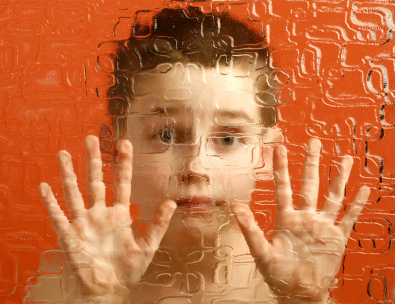 Autism is a neurobiological disorder characterized by persistent deficits in social communication and social interaction across settings that are not accounted for by developmental delays. A diagnosis of Autism is made when the symptoms impair functioning and reflect restrictive, repetitive patterns of behavior, interests, or activities that are evidenced in childhood.
Autism is a neurobiological disorder characterized by persistent deficits in social communication and social interaction across settings that are not accounted for by developmental delays. A diagnosis of Autism is made when the symptoms impair functioning and reflect restrictive, repetitive patterns of behavior, interests, or activities that are evidenced in childhood.
Autism is a forthcoming diagnostic category and incorporates previous diagnoses of autism, Aspergers, and Pervasive Developmental Disorders (PDD-NOS). ASD differentiates these previous diagnoses primarily by the severity of symptoms.
Many children experience mild difficulty with social-communication skills or being preoccupied in areas of interest. These Alternative Learners, who may best be described as “quirky” or “atypical,” or as having social-communication difficulties, can be helped by many of the technological and academic strategies presented on this website.
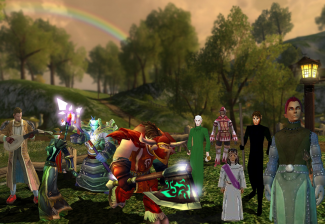 Video games and other digital media can be both beneficial and comforting to children with all types of Autism Spectrum Disorders. Proper use of these technologies can help reduce anxiety, improve social skills, and lessen many symptoms of Autism. In part, this is a result of the way that this kind of media counterbalances their symptoms, but it can also come from using these technologies to teach children affected by Autism many of the skills that may be impaired as a result of their disorder. The following chart demonstrates some of the ways that video games and digital media can be helpful for these children.
Video games and other digital media can be both beneficial and comforting to children with all types of Autism Spectrum Disorders. Proper use of these technologies can help reduce anxiety, improve social skills, and lessen many symptoms of Autism. In part, this is a result of the way that this kind of media counterbalances their symptoms, but it can also come from using these technologies to teach children affected by Autism many of the skills that may be impaired as a result of their disorder. The following chart demonstrates some of the ways that video games and digital media can be helpful for these children.
| Kids with Autism Spectrum Disorders: | Video Games and Other Digital Media |
| May be inflexible or rigid and struggle with changes or making mistakes. | Video games help kids practice being flexible in a safe and engaging environment by learning the rules of the game through trial and error and guided discovery. |
| Often are unaware of social cues and convention. | Massive Multi-player Online Games are particularly good for becoming part of a group and require that players learn the “customs” of the game world, allowing kids with Autism to socialize in a more comfortable environment. |
| Often display poor fine or gross motor coordination. | All video games practice some degree of fine and gross motor skills, particularly those with motion controls. |
| May become vulnerable to bullying, while not understanding when they are being teased or how to protect themselves. | Many online multi-player games contain the same types of social interactions a child will find at school–both the good and the bad. However, parents can sit with their child (without the other players knowing) to help coach them through any difficult social interactions that may occur. |
| Often do not share common interests with peers. | Most kids play at least a few video games, so having a knowledge of gaming will give kids with Autism a topic of conversation to use with their peers. |
 Flexibility: Kids with ASD may have difficulty with adaptive, fluid problem solving. They may also have difficulty learning from mistakes and can become easily frustrated.
Flexibility: Kids with ASD may have difficulty with adaptive, fluid problem solving. They may also have difficulty learning from mistakes and can become easily frustrated.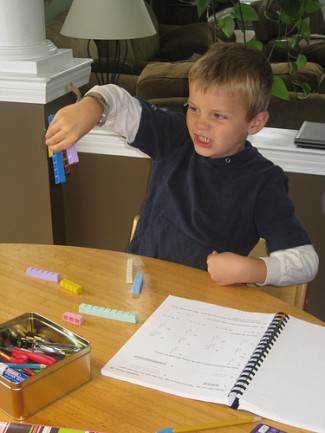 Video games and other digital media are often well-suited for helping children with social-communicative disorders improve their Academic Skills. These tools are highly motivating for many children with these disorders and encourage repeated practice and mastery of academic tasks. In addition, it is easy to find video games and other digital media that match a child’s developmental needs. Because digital tools allow for teaching without the complication of having other people being involved, they may be a great supplemental source for teaching both in the classroom or at home, as well as to reduce inflexibility and frustration.
Video games and other digital media are often well-suited for helping children with social-communicative disorders improve their Academic Skills. These tools are highly motivating for many children with these disorders and encourage repeated practice and mastery of academic tasks. In addition, it is easy to find video games and other digital media that match a child’s developmental needs. Because digital tools allow for teaching without the complication of having other people being involved, they may be a great supplemental source for teaching both in the classroom or at home, as well as to reduce inflexibility and frustration.
Here are a few suggestions for identifying the best academic video games and other digital media for children with social communication difficulties or ASD:
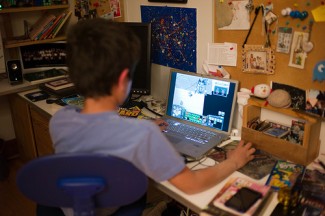 While video games and other digital media can be a powerful aid in a teaching a variety of social and other vital skills, there are a number of concerns about the use of these tools for children with ASD and social-communicative issues.
While video games and other digital media can be a powerful aid in a teaching a variety of social and other vital skills, there are a number of concerns about the use of these tools for children with ASD and social-communicative issues.
As a result, we encourage parents to be very judicious about and monitor the use of digital media for children with ASD and social-communicative issues. Consult the table below to see what you should watch out for, and how you can go about avoiding these problems.
| Cautions | Solutions |
| Because children with ASD often struggle in social relationships, they can become overly drawn to single-player games or immerse themselves on the Internet. | Require that your child predominantly play multi-player games and games that facilitate social interactions. Kids with ASD may find that they’re more readily accepted by their peers in these games, as they have more skill at identifying social cues in game-based communication than in translating nonverbal cues. |
| While social gaming can be helpful for kids with ASD, they may become so comfortable in these online social settings, that they lose sight of the importance of face-to-face communication. | Carefully monitor how much time your child is spending in these online social settings, and always make sure to use them as an opportunity for practicing face-to-face communication skills. Ask your child questions about specific online social interactions, and have him try to explain how such an interaction would play out in the “real world.” |
| Kids with ASD are also easily obsessed and may perseverate on playing a particular game beyond the point where they gain any benefit from it. | Encourage your child to play a variety of games and even a variety of different genres and game-modes. Playing many different types of games will help him improve his flexibility, and lessen the likelihood of becoming obsessed with just one game. |
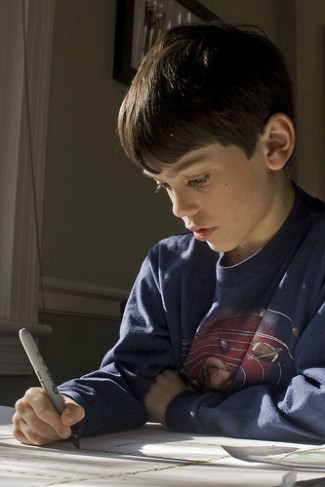 Treating ASD and social communication difficulties requires more than just the digital strategies that we can teach you. A number of traditional strategies work very well in conjunction with the methods described at LearningWorks for Kids, including behavioral, educational, and medical approaches. These may include:
Treating ASD and social communication difficulties requires more than just the digital strategies that we can teach you. A number of traditional strategies work very well in conjunction with the methods described at LearningWorks for Kids, including behavioral, educational, and medical approaches. These may include:
“How often should I let my child play video games?” might be the most common question I am asked as a child clinical psychologist. There are a lot of mixed […]
Parents of kids affected by Attention-Deficit/Hyperactivity Disorder (ADHD) or Autism Spectrum Disorder (ASD) are often confused by advice given to them about managing their kids’ screen time. On the one […]
Parents of kids diagnosed with Autism Spectrum Disorder often report how engaged their children are with almost all technology and screens. Anecdotal reports and recent research describe how kids with […]
All membership plans come with full access to our entire suite of tools learning guides, and resources. Here are a few of the ones we think you’ll like the most: